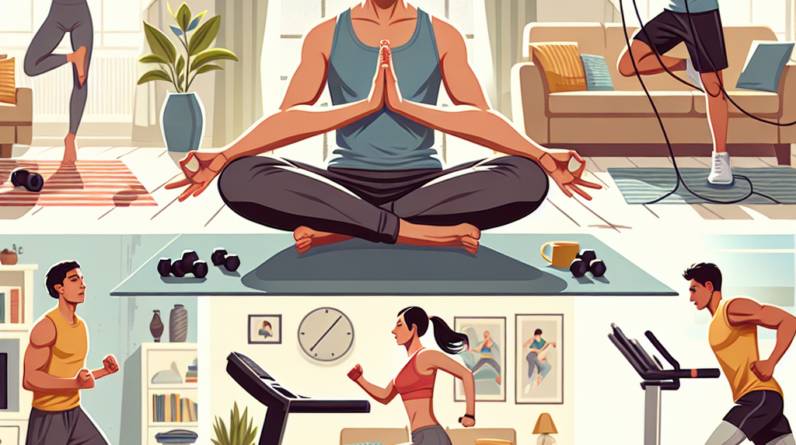
Create a Sleep-Conducive Environment
Optimize Your Bedroom Setup
First off, the setup of your bedroom can make all the difference when it comes to getting quality sleep. I learned that a well-organized space plays a big role in creating a relaxed atmosphere. Try decluttering your room; a tidy space can reduce stress and distraction. I noticed that when my room is messy, I tend to feel a bit anxious, which doesn’t do my sleep any favors.
Get a Huge Discount and Bonus! Try for 90 Days Risk Free
Next, consider the lighting. Dark environments signal your body that it’s time to rest. I invested in blackout curtains, and trust me, they’ve been a game-changer. No more early morning sunrises waking me up! Note how bright lights can interfere with melatonin production, making it tougher for your body to wind down at night.
Lastly, the temperature of your room matters, too. A cool, comfortable room typically helps me fall asleep faster. Aim for around 60 to 67 degrees Fahrenheit. I often crack a window or use a fan, and I’ve found it makes a significant difference in my sleep quality.
Limit Noise Disruptions
We’ve all experienced those nights where every little noise just seems to magnify. If you live in a bustling area, consider investing in some earplugs or a white noise machine. Personally, I use a simple fan for the soothing sound, and it really drowns out disturbances.
You might also try to establish a “no tech” policy about an hour before bed. The blue light from screens can interfere with our ability to relax. I’ve started putting my phone on ‘Do Not Disturb’ to prevent notifications from disrupting my peace. It really helps me settle down more naturally.
And if noise is just unavoidable, think about soundproofing your room with heavy curtains or rugs. These small changes can drastically reduce the distractions and help create a calmer environment for sleeping.
Choose the Right Bedding
The bedding you choose can actually influence your sleep quality. Switching to breathable materials like cotton or bamboo has made a noticeable impact for me. I always opted for soft sheets, and I’ve found that they contribute to better sleep. It’s all about finding what feels good against your skin.
Pillows are also super important. I used to sleep with too firm a pillow which left me with neck cramps. I shifted to a more suitable one that supports my neck properly, and let me tell you, my mornings are so much brighter now! It’s worth experimenting with different types until you find your perfect match.
Finally, consider the longevity of your bedding. Old and worn-out items can affect comfort, so don’t hesitate to refresh your linens if they’re making you uncomfortable. Cozy beds equal cozy dreams!
Get a Huge Discount and Bonus! Try for 90 Days Risk Free
Establish a Relaxing Bedtime Routine
Wind Down with Relaxation Techniques
One thing I learned over time is that how I wind down is super important. I started implementing a pre-sleep routine and it’s been a lifesaver. Activities like reading a book or practicing gentle yoga really help me transition from the hustle and bustle of the day to a much calmer mindset.
Meditation is another great tool I’ve added. Just ten minutes of focused breathing can do wonders for clearing the mind. It’s helped me immensely when my thoughts race at night, making it so much easier to drift off.
And let’s not forget about the power of a warm bath! I can’t tell you how soothing it feels to relax in warm water before bed. It’s become a comforting ritual that signals to my body that it’s time to get cozy.
Stick to a Consistent Sleep Schedule
Okay, this is another biggie. I know it can be tough, especially during the weekends, but trying to go to bed and wake up around the same time helps regulate my body’s natural clock. I was surprised by how much determined my energy levels in the following days!
Need a Serious Energy BOOST? Huge Discount Try for 90 Days Risk Free
Setting an alarm isn’t just for mornings! I started setting reminders to wind down in the evening too. It’s like giving my body that gentle nudge, saying, “Hey, time to relax!” I really recommend doing this if you want to bring some consistency to your schedule.
And if you’ve got trouble falling asleep, getting out of bed after 20 minutes of tossing and turning can be beneficial. I learned this the hard way; returning to bed once I felt sleepy helped make it less frustrating.
Avoid Stimulants Before Bed
This one, I can’t stress enough—cutting back on caffeine and nicotine before bed has made a noticeable difference. I used to be a night owl fueled by coffee, but I took a step back and started limiting my intake after midday. The result? A more restful night!
Alcohol might seem like a good way to wind down, but I found it was messing with my sleep cycles. Even if I was ‘asleep’ faster, I’d often wake up feeling foggy. Avoiding alcohol a few hours before sleep helps keep everything in balance.
Just remember, it’s about finding what works for you; for some, even chocolate at night can be a form of stimulation! Listen to your body and adjust as you go along.
Adopt Healthy Lifestyle Habits
Stay Physically Active
Regular exercise is a game changer, my friends. I’ve really noticed that when I get my body moving during the day, sleep comes easier at night. It’s all about keeping that energy expenditure balanced, right?
Your exercise doesn’t need to be intense; even a brisk walk can work wonders. I’ve found that getting outside during the day has really helped, too! Not only does it boost my mood, but the sunlight also encourages my body to produce melatonin when it’s bedtime.
But remember, timing matters! Try to avoid strenuous workouts close to bedtime; I’ve learned the hard way that exercising too late can be a bit too energizing. Aim for earlier in the day when possible.
Good Health Solution is Easier Than Most People Think!
Take a Look for Yourself!
Eat a Balanced Diet
The food I put into my body can have a pretty direct influence on my sleep quality. Learning about what to eat (and when) has been eye-opening. I’ve found that having a light dinner and avoiding heavy, rich foods really helps my sleep. Going to bed on a full stomach ain’t fun!
Also, certain foods help produce melatonin, like bananas or cherries. I try to incorporate a banana into my evening snack; it’s a great way to naturally encourage sleepiness.
And hydration is important, too—just watch out not to drink too much right before bed! I aim to get enough water throughout the day so I’m not up and down waiting for nature to call at night.
Manage Stress Levels
Stress can really throw a wrench in anyone’s sleep quality, right? I used to have quite a few stressors weighing me down, but I focused on mindfulness practices. Incorporating things like journaling in the evenings has helped me tremendously in processing my thoughts.
Finding hobbies that help distract my mind has been another stress relief method. Whether it’s knitting, drawing, or simply binge-watching my favorite show, keeping myself relaxed is key. I’ve learned that engaging in enjoyable activities before bed can really help keep my stress levels in check.
And don’t be afraid to reach out for support! Connecting with friends or loved ones can be a great outlet. Just sharing my thoughts with someone I trust alleviates so much weight off my shoulders.
Consider Natural Sleep Aids
Herbal Supplements
Herbal remedies have become a staple in my pre-sleep routine. I started with simple chamomile tea, and I can honestly say it’s soothing. It’s become my go-to drink before bed; its calming properties really help signal to my body that it’s time to unwind.
Melatonin supplements are another popular option I’ve explored. I’ve tried using them on particularly restless nights. They help sync my sleep schedule more effectively, especially when I travel or have disrupted routines.
Of course, always be careful and consult a professional if you’re not sure what’s right for you. Knowing my body’s needs has guided me through finding what’s both safe and effective.
Aromatherapy
Now, who doesn’t love a good scent, right? I’ve dabbled in essential oils, particularly lavender and cedarwood. A few drops on my pillow or in a diffuser creates an inviting, relaxing atmosphere that feels like a warm hug.
I often find that certain scents can trigger relaxing memories for me. There’s something about integrating my senses that enhances my sleep experience. The relaxing vibe goes a long way!
Don’t feel overwhelmed; you can start this journey slowly. Just a few drops in your nightly routine can make such a huge impact. A good night’s sleep is truly a sensory experience!
Mindfulness and Meditation Apps
Last but not least, I can’t overlook the tech! Although I’m mindful of screen time, I’ve discovered meditation apps that guide me to relaxation effectively. It’s in those moments of calmness that I find my way to deeper sleep.
These apps often come with soothing backgrounds and soothing voices leading you through guided sessions. I simply plug in my earbuds and let the stress wash away. It’s a welcomed escape from the chaotic day-to-day!
As with everything, find the tools that fit your lifestyle. Experimenting with what works for you can open the doors to peaceful sleep!
FAQ
1. How long does it take to see improvements in sleep quality?
It often varies for each individual. Some people see improvements within a few days, while others may need a few weeks to establish consistent habits. Patience is key!
2. Are natural sleep aids safe to use?
Most natural sleep aids are safe, but it’s always a good idea to consult with a healthcare professional, especially if you’re on other medications or have existing health conditions.
3. How can I create a sleep-conducive environment on a budget?
Even small changes can make a difference! Try using blackout curtains, rearranging your furniture for more comfort, or investing in cheaper, breathable bedding to create a better atmosphere.
4. Can diet really affect my sleep?
Absolutely! What you eat and when you eat can significantly influence your sleep quality. Focus on lighter meals and foods that promote sleepiness, like bananas or cherries.
5. Should I avoid napping during the day?
Napping isn’t bad, but keep it short! Brief power naps can be refreshing, but longer ones close to bedtime can make it harder to sleep at night. Listen to your body!








